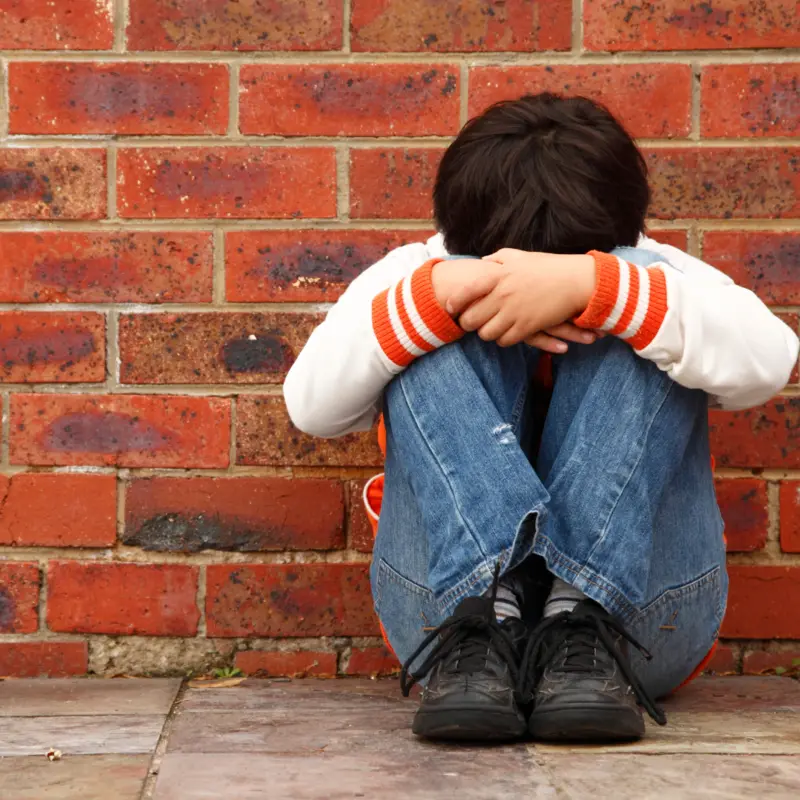How to incorporate Anti-Bullying Week into the foster care experience
Date published
07 November 2024
07 November 2024

Since many children in foster care may have experienced trauma, neglect, or bullying in the past, incorporating Anti-Bullying Week into fostering is about more than just talking about bullying; it’s about creating a culture of respect, empathy, and support for every child. By using this week as a teaching tool, foster carers can equip children with the skills they need to recognise bullying, deal with it effectively, and stand up for themselves and others. It also provides an opportunity for fostering families to connect with their communities and promote a broader culture of kindness and inclusion.
Here are several ways you can tie Anti-Bullying Week into the fostering experience:
Foster carers can have conversations with the children in their care about what bullying is, why it happens, and how it affects individuals. This can be done through storytelling, discussions, or watching videos that demonstrate the impact of bullying on others.
Children, especially older ones, might be encouraged to reflect on their own experiences with bullying, whether they’ve been bullied or have witnessed bullying. These discussions can help children develop empathy and understand the emotional impact bullying has on others.
Anti-Bullying Week can focus on the importance of building positive relationships. Foster carers can help children understand how to make and maintain friendships, how to resolve conflicts peacefully, and how to stand up for themselves and others in a respectful way.
Foster carers can organise team-building exercises that encourage cooperation, trust, and mutual respect. This could be done through games, arts and crafts, or group discussions that promote communication and teamwork.
Foster carers can use Anti-Bullying Week as a moment to revisit the rules, set boundaries and expectations around behaviour in the home, emphasising the importance of kindness, respect, and inclusivity. It’s a chance to create an environment where bullying is not tolerated and where every child feels safe and heard.
For children who may feel isolated or vulnerable, Anti-Bullying Week can help them learn about the various support systems available, including social workers, teachers, and foster carers themselves. Reiterating that help is always available can make children feel more secure.
Children can participate in creating anti-bullying posters, writing short stories or poems about friendship and kindness, or creating 'anti-bullying pledges' that they can personalise. These creative activities not only help reinforce the message of Anti-Bullying Week but also encourage children to express their feelings in healthy ways.
Drama exercises are a powerful tool for teaching children how to handle bullying situations. Foster carers can guide the children through role-playing activities where they practice standing up for themselves or helping a friend who is being bullied. This can increase the child’s confidence in real-life situations.
Foster carers can use books that address bullying, kindness, and friendship to start discussions with children. Books such as "The Juice Box Bully", "Each Kindness", or "Wonder" can spark valuable conversations about how to treat others with respect.
Encourage children to be “upstanders” rather than bystanders when they witness bullying. They can be taught how to intervene safely, speak up, or report bullying situations. This can help children develop confidence in standing up for others and advocating for kindness and fairness.
Foster carers can help children understand that they have the power to shape their own environment by being role models of respect, inclusion, and kindness. Encouraging children to support and uplift one another can promote a positive culture within the foster home and the wider community.
Bullying can have a significant impact on a child’s mental health, especially for children in care who may already have experienced trauma. Anti-Bullying Week can be an opportunity to discuss the link between bullying and mental health issues such as anxiety, depression, and low self-esteem. Simply creating a safe space where children can talk about their feelings can help children manage the emotional effects of bullying. Foster carers can help children recognise and express their feelings in healthy ways.
With the rise of social media and digital communication, cyberbullying is a growing concern. Foster carers can incorporate digital safety and anti-bullying messages into discussions, teaching children how to protect themselves online and how to be kind in digital spaces.
It can be helpful for foster carers to educate children on the dangers of cyberbullying and help them understand how to report it. Talking about the importance of respectful online behaviour can empower children to use technology in a positive and constructive way.
Anti-Bullying Week can also highlight the importance of celebrating differences. Children in care often come from diverse backgrounds and may have different cultural or family experiences. Encouraging an environment of inclusivity where every child’s background is respected can help reduce bullying related to differences.
Encourage children to recognise and celebrate what makes them unique and special. This can boost self-esteem and help children develop pride in who they are, reducing the likelihood of bullying based on differences.
Childline www.childline.org.uk
Anti-bullying Alliance www.anti-bullyingalliance.org.uk
Young Minds www.youngminds.org.uk
The Diana Award www.diana-award.org.uk
Bullying UK (Part of family lives) www.bullying.co.uk
Kidscape www.kidscape.org.uk
The NSPCC www.nspcc.org.uk
Digital Awareness UK www.digitalawarenessuk.com
Stonewall www.stonewall.org.uk
Fostering insights
07 November 2024